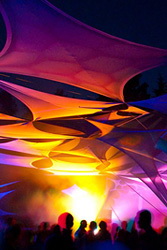Bringing subcultural societies to the surface
Modern society is made of up many subgroups – microcosms of parts making up the whole. Therefore in order to better understand society, an examination of the subcultures that exist within it is vital. Hence, that is precisely what the EU-funded SAL project did through its investigation of post-Soviet societies. Half a century of communist rule has served to set post-Soviet countries apart from their Western European counterparts in terms of cultural heritage. Prior to this, research on subcultural communities within post-Soviet countries did not exist. The SAL project sought to understand how it is that groups formulate, operate and dissolve. The subcultural groups included those defined by lifestyle in terms of musical taste, for example, as well as those formed according to ethnicity and religion. Over 30 subcultural groups in 10 countries were included over the course of 3 years and a SAL electronic archive was developed so that researchers could communicate effectively. Data included audio, image and video files as well as interviews and questionnaires. Groups across a wide range of membership size were part of the study, pointing out that small groups can be more easily studied in terms of their life span. Furthermore, the impact smaller groups have on society cannot be dismissed as regards to their influence on ideas and values. It is in fact what people value that provides the impetus for group formation, as the SAL project research confirmed. Researchers also concluded that the connection between different groups and their larger society is a heterogeneous one which takes into account an individual’s identity, gender, culture and value orientation. The available research data can serve to enhance democratisation in countries recently admitted to the EU.




